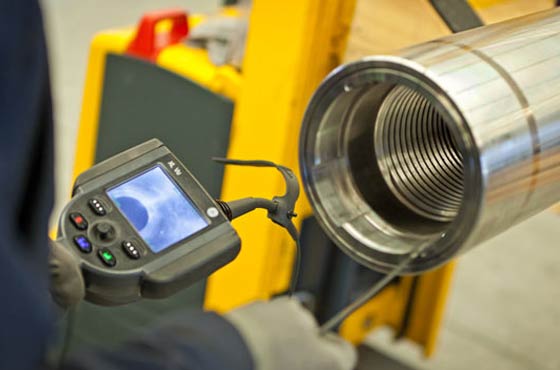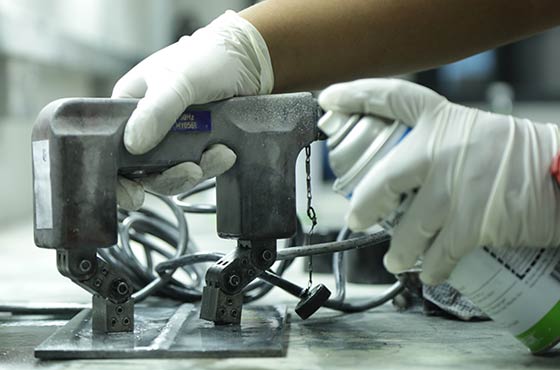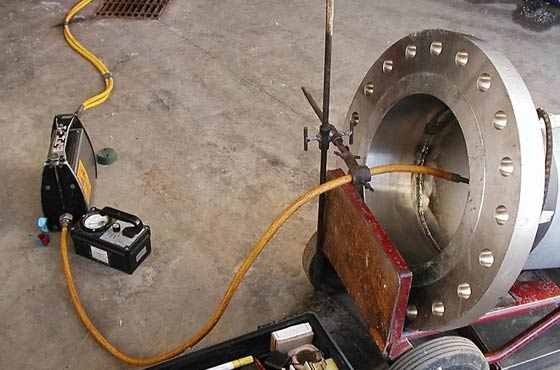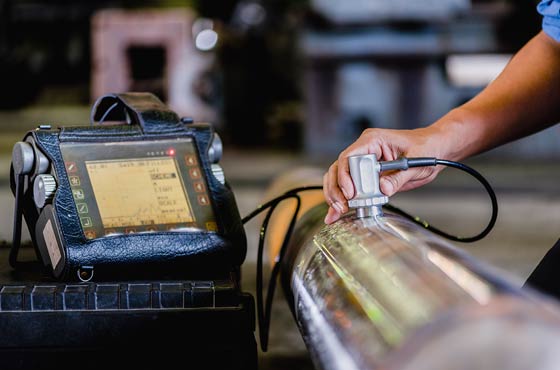After providing pertinent educational and experiential information, candidates undergo training in accordance with ASNT norms. The training program includes both theoretical and practical examinations. Upon successful completion, candidates receive Level II and Level I certifications with international recognition, enabling them to work on projects worldwide.

The program encompasses an introduction to visual testing, covering the fundamentals of vision, and familiarizing participants with test equipment like mirrors, magnifiers, boroscopes, fiberscopes, as well as manufacturing processes and discontinuities. Our dedicated team of professionals and skilled trainers is committed to meeting your specific requirements.
The content covers the fundamentals of penetrant testing, including topics such as penetrant groups, pre-cleaning methods, techniques for penetrant removal, various types of developers and their application procedures, inspection procedures, concepts of sensitivity and resolution, as well as accessories and different types of discontinuities.


The content covers the fundamentals of penetrant testing, including topics such as penetrant groups, pre-cleaning methods, techniques for penetrant removal, various types of developers and their application procedures, inspection procedures, concepts of sensitivity and resolution, as well as accessories and different types of discontinuities.

The content encompasses fundamental aspects of magnetism, covering magnetization techniques, various types of currents, inspection mediums, inspection techniques, test equipment, and accessories. It also includes demagnetization processes, different types of indications, manufacturing processes, and various types of discontinuities.
The content covers nuclear physics, the interaction of radiation with matter, concepts of shielding, radiation detectors, biological effects of radiation, principles of radiation protection, fundamental safety rules, characteristics of radiation sources, and aspects related to film construction and film processing.


The content covers nuclear physics, the interaction of radiation with matter, concepts of shielding, radiation detectors, biological effects of radiation, principles of radiation protection, fundamental safety rules, characteristics of radiation sources, and aspects related to film construction and film processing.

The content comprises the properties of sound waves, the generation of ultrasound, interactions between ultrasound and matter or boundaries, various types of probes, testing techniques, equipment for testing, instrumentation, variables involved in testing, inspection procedures, and the identification of different types of discontinuities.
In the presence of a discontinuity, the radiographic interpreter utilizes the criteria outlined in the applicable code for the weld to determine whether it constitutes a defect or meets acceptable standards.


In the presence of a discontinuity, the radiographic interpreter utilizes the criteria outlined in the applicable code for the weld to determine whether it constitutes a defect or meets acceptable standards.
